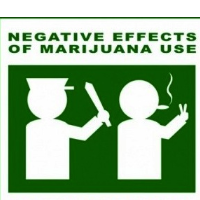3-Day Hearing in Federal Court Challenges Putting Marijuana in the Same Drug Classification as Heroin

Forty-three years after President Richard Nixon declared that marijuana was a Schedule I drug, cannabis has gotten its day in court thanks to a U.S. District judge trying defendants in a cultivation case. According to the Drug Enforcement Administration (DEA), Schedule I drugs have “no currently accepted medical use and a high potential for abuse” and “are the most dangerous drugs.” Other Schedule I drugs are heroin, LSD, ecstasy, methaqualone, and peyote.
Judge Kimberly J. Mueller heard arguments last week into whether marijuana is properly classified as a Schedule I drug. The defense is arguing that the federal government’s position, that marijuana is useless medically with a high potential for addition, contradicts its hands-off attitude toward Colorado and Washington, which have legalized the drug for personal use and the other states that allow it for medical purposes.
“If marijuana is actually such a dangerous drug, the rational response by the Department of Justice would be to increase, not decrease, prosecution in those states which permit its distribution. In effect, the action taken by the Department of Justice is either irrational, or more likely proves the assertions made in Part I (B) of this Memorandum: marijuana does not fit the criteria of a Schedule I Controlled Substance,” Zenia Gilg, a member of the legal committee of the National Organization for the Reform of Marijuana Laws (NORML), argued in her court filing (pdf).
The government put up Bertha Madras, former deputy drug czar under President George W. Bush with a Ph.D. in biochemistry, to testify that marijuana should keep its current status. Gilg attacked Madras’ credentials, pointing out that she had never treated patients or participated in any research on the effects of cannabis, Jeremy Daw wrote for The Leaf Online.
Dr. Philip Denney of the Society of Cannabis Clinicians, who testified for the defense, has written about marijuana’s lack of addictive properties and its demonstrated efficacy for many medical conditions and its potential to be useful in others, such as Alzheimer’s disease, sleep disorders and other issues, according to the San Francisco Chronicle.
Mueller’s ruling will affect only the case currently before her in which seven men are charged with growing marijuana on national forest property in Trinity and Tehama counties in 2011.
-Steve Straehley
To Learn More
War On Pot Defies Science, Doctors Testify In Federal Court (by David Downs, Smell the Truth)
‘Medicine’ On Trial In Cannabis Scheduling Hearing (by Jeremy Daw, Leaf Online)
Marijuana Ban To Have Rare Hearing In Federal Court (by Bob Egelko, San Francisco Chronicle)
EDCA Court First To Set Evidentiary Hearing On Constitutionality Of Marijuana As Schedule I Controlled Substance (Eastern District of California)
- Top Stories
- Unusual News
- Where is the Money Going?
- Controversies
- U.S. and the World
- Appointments and Resignations
- Latest News
- Trump Orders ICE and Border Patrol to Kill More Protestors
- Trump Renames National Football League National Trump League
- Trump to Stop Deportations If…
- Trump Denounces World Series
- What If China Invaded the United States?






Comments